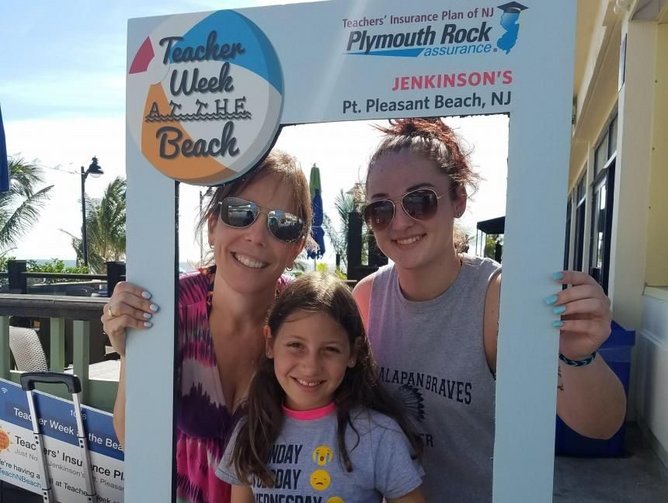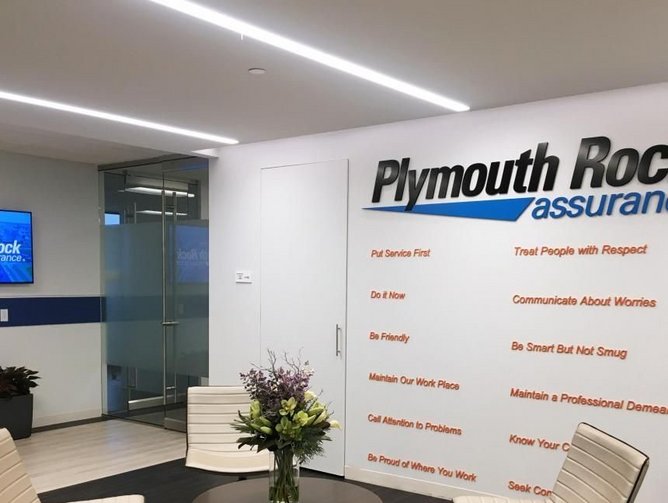How Plymouth Rock leverages digital transformation to compete in the evolving insurance industry
Today, customer service is all about choice and innovation and the increasingly competitive insurance sector is no exception. Consumers want to communicate in the most convenient way for them, and they expect personalized service as well as products tailored to their specific needs. Across an increasingly demanding landscape, auto and home insurance carrier Plymouth Rock Assurance has stepped up to this challenge and adapted its offering to survive – and thrive. Tom Lyons, Chief Operations Officer of Plymouth Rock Assurance’s Direct Response Channel, has closely watched the changing industry over his 12 years at the company. He has observed key consumer habit changes and notes an important shift: consumers increasingly want the ease of doing business through a distribution channel of their choice. This is the very reason the Direct Response Channel for Plymouth Rock was born.
“In New Jersey, property and casualty insurance market share has evolved from being independent and exclusive agent dominated to more direct dominated,” Lyons explains. For example, in 2003, New Jersey was 71% dominated by independent and exclusive agents. Today those same agents make up around 47% of the market. In comparison, the Direct market share in 2003 was 29% and now stands at 53%. Plymouth Rock has had to adapt to this transformation in the industry while continuing to invest in and support its independent and Prudential exclusive agent networks.
Traditionally, the insurer distributed its products solely through an agency model. In order to step up and compete with the evolution of direct writers, a key element of Plymouth Rock’s transformation was to build a direct capability that complemented and strengthened its agency distribution offering. “Within our geographic footprint, you’ll see that a lot of the big, national direct writers entered our markets and began gobbling up market share from the agency channels,” Lyons comments. “To combat that, we piloted building out a direct-to-consumer response channel about 10 years ago to see if we could make the economics of growing through direct distribution work. We also needed to help our agency channels compete in a digital marketplace.” While initially a pilot venture, failure was not an option. Plymouth Rock needed to build an economical and scalable direct business to compete in the marketplace and to fuel growth. Over the past decade, it has transformed into a multi-channel distribution model.
Plymouth Rock’s goal is for its Direct Response Channel to be a partner to its agency channel, as opposed to a competing business. “From the initial launch of the Direct Response Channel through today, our focus has been helping the Plymouth Rock Enterprise compete in this evolving digital landscape. We are continually on the hunt for new marketing sources, partners, and technology to leverage for the benefit of our agents,” says Lyons.
Since being founded in 1982, Plymouth Rock has expanded significantly across the northeast US. Initially, Plymouth Rock distributed its products in Massachusetts and eventually moved into New Jersey in 1993. It also has been active with independent agents in Connecticut and New Hampshire for more than 20 years. Currently, Plymouth Rock’s Direct Response Channel is actively writing in New Jersey, Pennsylvania, Connecticut and New Hampshire. The company plans to enter New York in the latter part of 2019.
As the market changes and develops, Plymouth Rock no longer just competes with local rivals. National and global companies also have become competitors. “Our direct national competitors have economies of scale in terms of their marketing and telesales acquisition dollars,” says Lyons. “In many cases, they have thousands of sales reps in their sales centers and very large national advertising budgets. To compete with that, we have to be extremely targeted and selective about where and how we spend our marketing dollars and how we sell our product.” In many ways, Plymouth Rock is maintaining an entrepreneurial startup mentality as it grows. It is careful how it spends its money and the relationships it forms, and it is adept at listening to each colleague within the fast-growing organization.
A significant advantage for Plymouth Rock is its deep understanding of the market and how consumer needs and expectations continue to evolve. Lyons is keenly aware of the shift to self-serve in the market and what this means for his organization. “Back in the old days of insurance, it was routine for customers to go to their local agent to buy insurance products, face to face. Nowadays, many customers want to be able to transact right from their smartphone or tablet and buy the product online or over the telephone. However, they still seek the comfort and confidence of knowing that there’s a licensed agent ensuring they make the right decisions. That’s the key to direct distribution. How do we make it easy for the consumer to buy the product, while still feeling well served and well informed?”
In order to provide the best possible experience for customers in a changing landscape, Plymouth Rock has worked with innovative startups that might otherwise be seen as disruptive competition. “We’ve worked with a lot of insurtech companies both from a technology and a distribution perspective,” says Lyons. “What sets Plymouth Rock apart from our competitors is that we try to form tailored strategic partnerships with these companies. It’s not just one size fits all.” For example, the insurer has partnered with other alternative distribution partners, which it calls Super Agents, throughout the country. The company has integrated with these partners through LeadCloud, a leading data integration partner. “Regional direct writers need to be scrappy and agile in how we form partnerships and how we integrate with them,” Lyons emphasizes. There’s a fine line to those arrangements, but several have worked out well for Plymouth Rock and its partners. “Transparency and collaboration is at the forefront of how we form these strategic partnerships to ensure win-win relationships,” says Lyons.
As well as startups, Plymouth Rock maintains relationships with more established tech partners in order to leverage the latest technology for a truly superior customer experience. Working with Salesforce.com, a customer relationship management (CRM) system, gives the company a unified 360-degree view of both current and prospective customers. “We monitor the customer journey all the way throughout their lifecycle with us through every touch point,” Lyons explains. “We understand if they like to communicate with us via email, chat, text or phone, so we can tailor the customer experience specific to those individuals. In addition, partnerships with IBM and Acxiom are instrumental for data management. We are pursuing multichannel marketing, where we execute a variety of different marketing channels to fit customers’ needs. Some consumers would prefer we market to them through email and display advertising, whereas others prefer direct mail or social media advertising. It’s about tailoring our messaging and approach to fit the needs of the customer.”
Another interesting area of partnership Plymouth Rock is beginning to explore is with financial institutions. “This is an area of expansion and growth,” says Lyons. “We’re finding that these financial institutions are able to round out their client base by offering a Property and Casualty insurance product with us, and in doing so, improve their customer retention. The strategic partnerships we form are key to what Plymouth Rock does. Our partnerships are not about ‘you do this and we do that’ – they are creative and agile. Plymouth Rock is currently working with many financial institutions in this regard and is actively seeking out new partnerships to advance our respective businesses.”
Internally, Plymouth Rock’s research and development team is always on the lookout for emerging technologies. Its agile, flexible approach allows new ventures and solutions to be piloted quickly before successful initiatives are rolled out across the organization. Every innovation implemented is measured in relation to its impact on customer experience, which is closely monitored. “We do customer surveys and focus groups to understand what customers like and don’t like about being insured with us, and we often make changes based on that. Keeping our finger on the pulse of consumers and being responsive to their needs helps keep us competitive and at the cutting edge of innovation,” Lyons says.
Another key element to finding the best solutions for its business and customers is Plymouth Rock’s culture of collaboration. It is not only external, but permeates the internal organization as well. “We have a culture where everybody in the organization, regardless of rank, feels empowered to give recommendations or suggestions,” Lyons says. For example, the popular Get Home Safe® benefit that’s unique to Plymouth Rock allows the company’s customers access to a free taxi ride home as a safer alternative to driving when necessary. This innovative service was suggested to the CEO by an employee in the lunchroom many years ago. It has now been rolled out across the enterprise. “We have a culture of collaboration and transparency across our various business units,” says Lyons. “These units empower an entrepreneurial spirit and an innovative approach to all of our business initiatives. And there is always collaboration to ensure the best practices of the various groups across Plymouth Rock.”
Through this entrepreneurial spirit and a commitment to collaboration, the Plymouth Rock Direct Response Channel has grown significantly. “We plan to grow our business quite rapidly over the next several years and feel our multi-channel approach to distribution should fuel growth in these new states for both our direct and independent agent channels,” Lyons explains. Throughout this journey, he is confident the organization will not lose the unique touch that led to this success in the first place, with customer service being at the forefront of everything it does. “Plymouth Rock was founded on the principle that a higher standard of customer service would make us stand out in an already-crowded industry. Treating our customers with courtesy, valuing their time, and understanding and empathizing with their issues has been crucial to our success. That is still part of our DNA. We respect the brand equity that Plymouth Rock has built since day one and honor our cultural values.”








